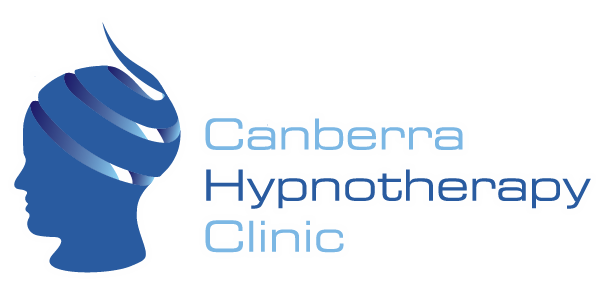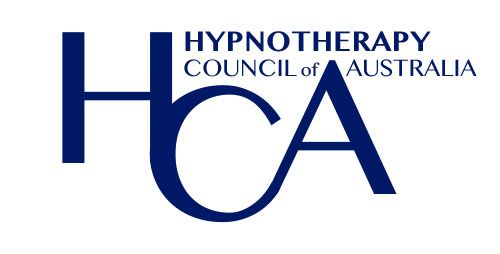Need Help?
Hypnotherapy for Addiction
Are you or a loved one grappling with addiction? At Canberra Hypnotherapy Clinic, we recognise the complexities of addiction and offer unwavering support and guidance on your path to recovery. Our approach integrates the transformative power of hypnosis for addiction treatment, providing a comprehensive solution that delves into the underlying causes of addictive behaviours.
Understanding Addiction
Addiction is a multifaceted condition that impacts individuals and their loved ones on various levels. It transcends mere physical dependence, affecting mental health, relationships, finances, and overall well-being. Living with addiction often means facing daily battles with intense cravings, compulsions, and withdrawal symptoms. These challenges can consume one's thoughts and energy, leading to feelings of powerlessness and despair.
Behind addiction lies a web of psychological and emotional factors, such as trauma, stress, and low self-esteem. Addressing these underlying issues is crucial for breaking free from the cycle of addiction and achieving lasting recovery.
Never tried Hypnotherapy? Now is your chance. Sample Hypnotherapy today!
Impact on Individuals and Families
Addiction doesn't just affect the individual struggling with it; it also takes a toll on their relationships, work, and social life. Loved ones may experience feelings of frustration, anger, and helplessness as they witness the struggles of their family member or friend.
Compassionate Support and Comprehensive Treatment
Recovery from addiction is possible with the right support and resources. At Canberra Hypnotherapy Clinic, we offer a compassionate and holistic approach to addiction recovery, combining evidence-based therapies such as hypnotherapy to address the root causes of addiction and empower individuals to reclaim their lives.
Addressing a Range of Addictions
Whatever form your addiction takes, our skilled hypnotherapists are equipped to offer tailored assistance and encouragement throughout your recovery journey.
Smoking and Vaping
Smoking and vaping are common forms of consuming tobacco and nicotine products. Smoking involves inhaling smoke produced by burning tobacco, while vaping refers to the inhalation of aerosolized liquid containing nicotine or other substances using an electronic cigarette or vaping device.
How Does Smoking and Vaping Affect People?
Smoking and vaping have significant health, social, and economic implications, impacting individuals' physical well-being, mental health, and overall quality of life.
Here are some ways in which smoking and vaping affect people:
Health Risks
Both smoking and vaping pose serious health risks due to their association with various diseases and medical conditions. Smoking tobacco is a leading cause of preventable death worldwide and is linked to lung cancer, heart disease, stroke, respiratory disorders, and other serious health problems. While vaping is often perceived as a safer alternative to smoking, it still carries health risks, including lung damage, nicotine addiction, and potential exposure to harmful chemicals and toxins in e-cigarette aerosols.
Nicotine Addiction
Nicotine is a highly addictive substance found in tobacco products and e-cigarettes. Smoking and vaping can lead to nicotine addiction, characterised by dependence on nicotine and withdrawal symptoms when attempting to quit. Nicotine addiction can perpetuate the cycle of smoking or vaping, making it challenging for individuals to quit and maintain long-term abstinence.
Social and Environmental Impact
Smoking and vaping can have social and environmental consequences, affecting not only individuals but also their families, communities, and the broader society. Secondhand smoke from cigarettes can harm non-smokers and pose health risks to children, pregnant women, and vulnerable populations. Additionally, smoking and vaping may contribute to environmental pollution, littering, and fire hazards.
Financial Burden
Smoking and vaping can impose a significant financial burden on individuals and households due to the ongoing costs of purchasing tobacco products or vaping supplies. The expenses associated with smoking-related healthcare, insurance premiums, and lost productivity further contribute to the economic impact of smoking and vaping.
Seeking Support for Smoking and Vaping Cessation
If you are ready to break free from the cycle of smoking or vaping addiction, seeking support from a hypnotherapist can be a valuable step towards achieving your goal of quitting for good. Hypnotherapy offers a unique and effective approach to smoking and vaping cessation, addressing both the physical and psychological and social factors contributing to smoking and vaping addiction, individuals can improve their health, well-being, and quality of life, ultimately breaking free from the harmful effects of tobacco and nicotine consumption.
Food
Struggling with weight management can be a challenging and frustrating experience, impacting various aspects of your life and well-being. Whether you're trying to lose weight, maintain a healthy weight, or break free from unhealthy eating habits, understanding the impact of weight management is crucial for achieving your goals.
What is Weight Management?
Weight management refers to the process of achieving and maintaining a healthy body weight through a combination of balanced nutrition, regular physical activity, and lifestyle modifications. It involves monitoring your food intake, making healthy food choices, staying physically active, and adopting sustainable habits that support long-term health and well-being.
The Impact of Weight Management
Effective weight management is essential for overall health and quality of life.
Excess weight or obesity can increase the risk of various health problems, including:
Chronic Diseases
Obesity is linked to an increased risk of chronic conditions such as type 2 diabetes, heart disease, stroke, high blood pressure, and certain cancers.
Mental Health
Weight management issues can take a toll on mental health, leading to feelings of low self-esteem, poor body image, depression, and anxiety.
Physical Functioning
Carrying excess weight can affect physical functioning and mobility, making it difficult to perform everyday activities and reducing overall quality of life.
Hypnotherapy offers a unique and effective approach to weight management by addressing the underlying psychological factors that contribute to overeating, unhealthy eating habits, and weight gain.
Through hypnosis, individuals can:
Identify and Address Emotional Eating
Hypnotherapy helps individuals identify and address emotional triggers and underlying psychological issues that contribute to overeating or unhealthy eating habits.
Reprogram Habits and Behaviours
Hypnotherapy can reprogram subconscious patterns and behaviours related to food cravings, portion control, and self-discipline, promoting healthier eating habits and self-control.
Boost Motivation and Self-esteem
Hypnotherapy can enhance motivation, confidence, and self-esteem, empowering individuals to make positive changes to their diet and lifestyle.
By addressing the psychological aspects of weight management, hypnotherapy can support individuals in achieving their weight loss or weight maintenance goals and improving their overall health and well-being. If you're struggling with weight management, get in touch to explore how hypnotherapy can help you on your journey to a healthier lifestyle.
Breaking the Chains of Addiction
Our experienced therapists provide personalised support and guidance, helping individuals navigate the challenges of recovery and build a foundation for lasting change. With the right help and support, individuals can overcome addiction and create a brighter, healthier future for themselves and their loved ones.
Gambling
Gaming
Sex or Porn
Work
Alcohol
Drug abuse
Internet
Prescription drugs
What to Expect During Your Hypnotherapy Session
In our hypnotherapy sessions, you'll find a safe and nurturing space where you'll collaborate with your therapist to uncover the root causes of your addiction. Starting with a discussion about your objectives and concerns, we customise the session to suit your individual needs.
Through gentle relaxation techniques, you'll enter a heightened state of relaxation, allowing your subconscious mind to become more open to suggestions. This state enables us to bypass the critical faculties of the conscious mind and communicate directly with the subconscious. Using specialised scripts and techniques, we assist you in exploring the origins of your addiction, shedding limiting beliefs, and cultivating new behaviours conducive to your recovery journey.
Frequently Asked Questions
What should I look for in a hypnotherapist for addiction treatment?
When seeking a hypnotherapist for addiction treatment, it's important to look for someone who is qualified, licensed, and experienced in both hypnotherapy and addiction counselling. Additionally, consider their approach, treatment philosophy, and compatibility with your personal goals and preferences.
How many sessions are typically needed for hypnotherapy to be effective?
The number of sessions needed varies depending on individual circumstances, the severity of the addiction, and the responsiveness to hypnotherapy. Some individuals may experience benefits after just a few sessions, while others may require more extensive treatment over time.
Is hypnosis safe for treating addiction?
Yes, when conducted by a trained and licensed professional, hypnosis is generally considered safe. It's important to work with a qualified therapist who can tailor the hypnotherapy sessions to your specific needs.
Can hypnosis help with relapse prevention?
Yes, hypnotherapy can be utilized to develop coping strategies, reinforce positive behaviours, and strengthen resilience against triggers, which can aid in relapse prevention efforts.
Break free from addiction with Hypnotherapy.
Contact us now to schedule your consultation and take the first step towards a calmer, more empowered you.

The Canberra Hypnotherapy Clinic is accredited by industry authorities like the Australian Institute of Clinical Hypnotherapy and the National Hypnotherapist Register of Australia, ensuring top-quality services. Our therapists are highly trained, certified professionals with years of experience, dedicated to tailoring sessions to each client's specific needs and goals.
Phone: 1800 617 755
Mobile: 0421 206 918
Canberra Hypnotherapy Clinic
Popular Services
Locations
Canberra Hypnotherapy Clinic
42 Geils Court, DEAKIN, ACT 2600
Sydney Office
98 Bondi Rd, BONDI JUNCTION NSW 2022





